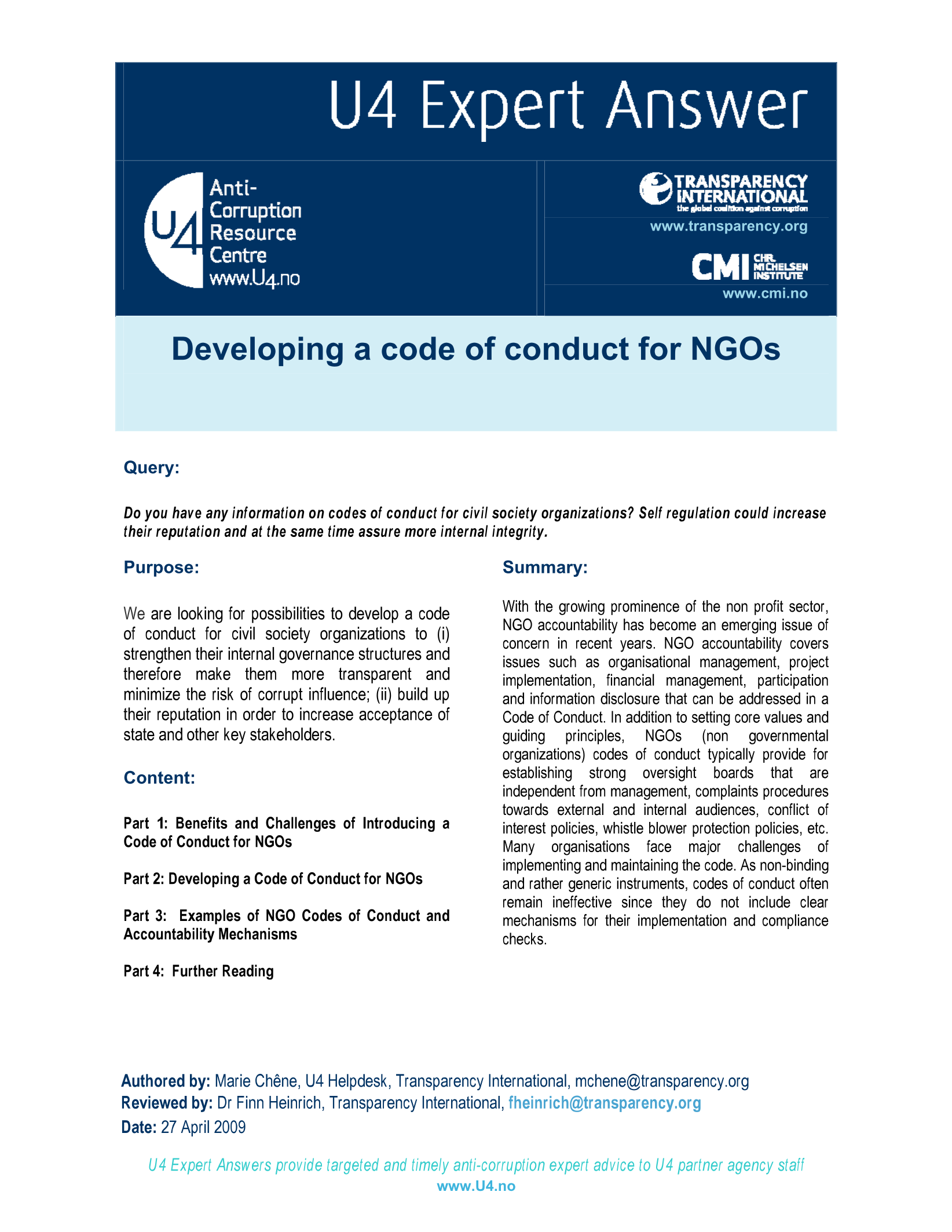U4 Helpdesk Answer
Developing a code of conduct for NGOs
With the growing prominence of the non profit sector, NGO accountability has become an emerging issue of concern in recent years. NGO accountability covers issues such as organisational management, project implementation, financial management, participation and information disclosure that can be addressed in a Code of Conduct. In addition to setting core values and guiding principles, NGOs (non governmental organizations) codes of conduct typically provide for establishing strong oversight boards that are independent from management, complaints procedures towards external and internal audiences, conflict of interest policies, whistle blower protection policies, etc. Many organisations face major challenges of implementing and maintaining the code. As non-binding and rather generic instruments, codes of conduct often remain ineffective since they do not include clear mechanisms for their implementation and compliance checks.

Cite this publication
Chêne, M. (2009) Developing a code of conduct for NGOs. Bergen: U4 Anti-Corruption Resource Centre, Chr. Michelsen Institute (U4 Helpdesk Answer Helpdesk)
Disclaimer
All views in this text are the author(s)’, and may differ from the U4 partner agencies’ policies.
This work is licenced under a Creative Commons Attribution-NonCommercial-NoDerivatives 4.0 International licence (CC BY-NC-ND 4.0)

